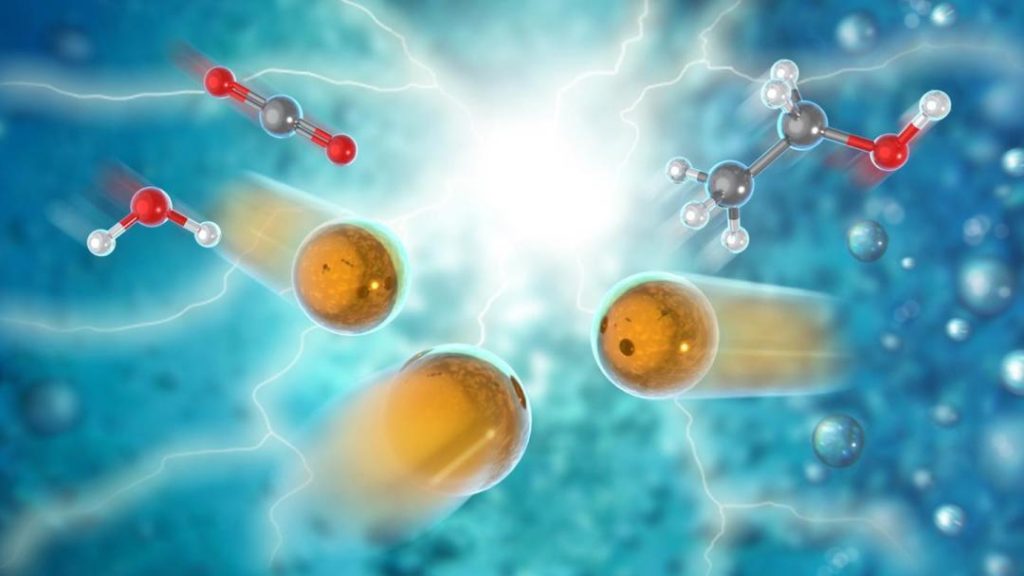
Korean Scientists Turn CO₂ into Alcohol with High Efficiency
In a groundbreaking achievement, researchers at the Gwangju Institute of Science and Technology (GIST) in South Korea have successfully developed an electrochemical method to convert carbon dioxide (CO₂) into allyl alcohol, a multi-carbon liquid chemical of high value. This innovative approach not only enhances conversion efficiency but also sets a global performance record with its large-scale production capability.
The conversion of CO₂ into valuable chemicals is a crucial step towards mitigating climate change. As the world grapples with the challenges of reducing greenhouse gas emissions, the development of sustainable methods for CO₂ utilization is gaining increasing attention. Allyl alcohol, in particular, is a highly sought-after chemical with applications in various industries, including the production of detergents, plastics, and pharmaceuticals.
The team of researchers, led by Dr. Sung-Jin Kim, employed an electrochemical method to convert CO₂ into allyl alcohol. This approach involves the use of a copper-based catalyst and an ionic liquid electrolyte, which enables the efficient reduction of CO₂ to produce the desired chemical. The researchers were able to achieve a conversion efficiency of 84.5%, significantly higher than previous methods, which typically range from 10% to 50%.
The high efficiency of the new method is attributed to the unique properties of the copper-based catalyst, which allows for the selective reduction of CO₂ to produce allyl alcohol. The ionic liquid electrolyte, on the other hand, plays a crucial role in facilitating the electrochemical reaction and enhancing the overall conversion efficiency.
One of the most significant advantages of the new method is its scalability. The researchers were able to produce allyl alcohol on a large scale, demonstrating the feasibility of the approach for industrial applications. This is a significant breakthrough, as many previous methods for CO₂ conversion have been limited to small-scale production.
The implications of this research are far-reaching. The ability to convert CO₂ into valuable chemicals like allyl alcohol has the potential to revolutionize the way we approach climate change mitigation. By developing sustainable methods for CO₂ utilization, we can reduce our reliance on fossil fuels and decrease greenhouse gas emissions.
The research also highlights the importance of international collaboration in addressing global challenges. The GIST team worked closely with researchers from the University of California, Los Angeles (UCLA) and the Korea Advanced Institute of Science and Technology (KAIST) to develop the new method.
As the world continues to grapple with the challenges of climate change, the development of innovative solutions like this electrochemical method for CO₂ conversion is essential. The ability to convert CO₂ into valuable chemicals like allyl alcohol has the potential to transform industries and drive sustainable development.
In conclusion, the research by the GIST team demonstrates the potential of electrochemical methods for CO₂ conversion and highlights the importance of international collaboration in addressing global challenges. As we continue to develop new technologies and methods for CO₂ utilization, we can work towards a more sustainable future and reduce our reliance on fossil fuels.






